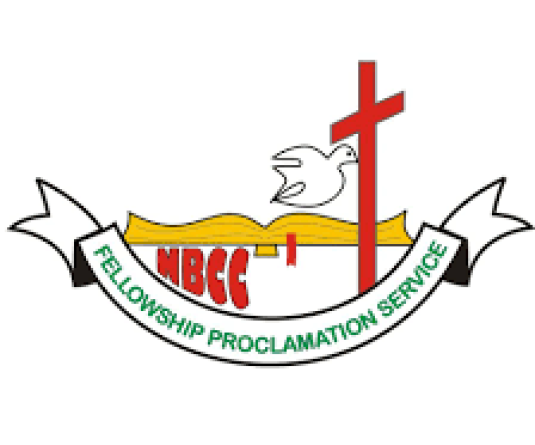
Letlal Haokip
Delhi
The ethnic conflict in Manipur has persisted for over two and a half years, despite repeated interventions by both the central and state governments. Behind the scenes, numerous individuals, organisations and peacebuilders have tried tirelessly to restore normalcy. However, their efforts have not borne the desired results. The imposition of President’s Rule in Manipur was a late but necessary step, one that perhaps should have come much earlier.
Unlike other conflicts India has witnessed, this particular crisis has led to a complete physical and emotional separation between two major communities, the Meiteis and the Kuki-Zo. In the aftermath of the violence, Meiteis residing in Kuki-Zo-dominated areas had to be rescued and are now settled in the valley districts like Imphal, Moirang, and Kakching. Meanwhile, many Kuki-Zo individuals, including high-ranking officials, business leaders, and professionals, who had homes in Imphal, were either killed or had to be rescued by central forces and the Indian Army during the initial outbreak and now are in their own villages or in Kangpokpi, Lamka, Moreh, and some are in Guwahati, Delhi, Dimapur, Aizawl, etc.
One of the key reasons the violence has dragged on is the trust deficit, particularly among the Kuki-Zo community. The central government’s decision to retain the Biren Singh-led government for over 18 months after the conflict began was widely seen as siding with one community. This further alienated the Kuki-Zo people and complicated the peace process. Had the state government been dissolved earlier, and President’s Rule enforced right at the beginning, the damage both physical and psychological might have been contained.
The Role of Media: From Healing to Harming
The media, which should have been a bridge in this crisis, has in many cases become part of the problem. Local and national television channels, as well as print and social media, have at times broadcast biased and inflammatory content. For instance, referring to the Kuki-Zo community as "narco-terrorists" not only dehumanises a people but also worsens tensions. As citizens working on the ground providing relief and promoting unity, we are disturbed by this dangerous rhetoric.
It is imperative that media outlets are held accountable and that they are encouraged, if not mandated, to promote peace, tolerance, and understanding. Misreporting and onesided coverage can set back reconciliation efforts by years, the civil societies and the central and state government. As the saying goes, “seeing is believing.” When we watch the news on television, we believe it to be true.
As Plan of Forward: Recommendations for Restoration and Reconciliation.
If we are to move forward, the Honourable Governor of Manipur, who now holds a critical position under President’s Rule, must act decisively and inclusively. Here are a few urgent steps that can be taken:
1. Engage Neutral Community Leaders: Bring together respected individuals from all tribes who have remained neutral and are committed to peace. These figures can act as trusted intermediaries to begin dialogue.
2. Involve Religious Leaders: Both local and nationally recognised spiritual leaders from various religions should be invited to spread messages of peace, forgiveness, and unity across both communities.
3. Media Regulation and Reform: Work with national and local media channels to broadcast positive stories of hope and cooperation. Counter hateful narratives with content that builds bridges, not walls.
4. Constitutional and Administrative Solutions: Explore the possibility of autonomy for the Kuki-Zo regions, or introduce dual governance structures—such as separate Chief Secretaries and Directors General of Police for the hill and valley regions—to promote fairness and balance.
5. Facilitate Dialogue in Neutral Locations: Organise peace talks between community leaders, possibly in Delhi or another neutral space, far from the emotionally charged environment within the state.
6. Beyond Relief, Towards Rebuilding: While providing food, shelter, clothing and education to the children of internally displaced people is essential, the deeper wounds, distrust, hatred, and trauma require long-term reconciliation strategies.
The central government does not just take a State Crisis; it is a National Concern.
This is not just Manipur’s problem. It is India’s problem. Every day that the conflict continues, our national fabric weakens. No one, including our Honourable Prime Minister, is happy to see this crisis persist. It is time for all levels of leadership, governmental, social, and spiritual, to act in unison to bring normalcy and harmony.
Better Late Than Never- The Honourable Governor now has the constitutional authority and moral responsibility to bring all the communities of Manipur together once again, whether we stay together or not. We can continue to stay as we are now, but as good neighbours. It will take years to trust one another. The situation is dire, but not hopeless.
As the saying goes, “Better late than never.” With God’s help, and with the sincere efforts of well-meaning individuals from all communities, Manipur can reclaim its lost peace and dignity.
The people of Manipur have suffered enough. Now is the time for healing. The Honourable Governor has a unique role and moral responsibility to work alongside civil society, religious leaders, and neutral figures from both communities to heal the wounds and restore humanity by identifying and punishing those responsible for the ethenic violence on May 3, 2023 and giving free hands to the central forces and army to deal with anyone who challenged the army and forces who try to bring normalcy and harmony.



.jpg)
.jpg)

